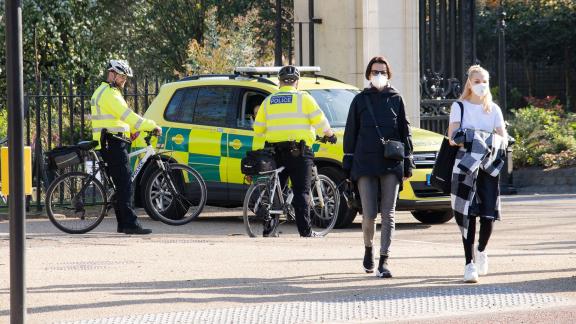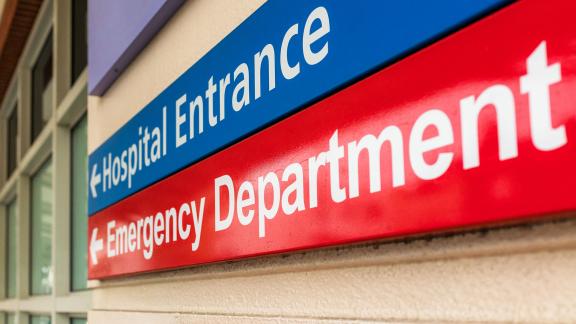Sexual safety in the NHS

This page provides information and resources that can be used by employers, trade unions and staff in NHS organisations to improve sexual safety and tackle sexual harassment.
Statement from the SPF co-chairs
The SPF co-chairs have given the following statements on sexual harassment in the NHS:
In 2023, for the first time, a question on sexual safety was included in the NHS Staff Survey. The results showed 8.67 per cent of staff reported unwanted behaviour of a sexual nature from patients/service users, their relatives or other members of the public, and 3.84 per cent from staff/colleagues. This equates to over 58,000 and 25,000 staff respectively.
No member of staff in the NHS should have to experience unwanted, inappropriate or harmful sexual behaviour in the workplace, which is why we encourage all NHS organisations, if you haven’t already, to sign up to the Sexual safety in healthcare – organisational charter. The charter includes ten commitments aimed at tackling sexual harassment and abuse in the workplace. Your signing of the charter will be a visible commitment to ending such behaviour in your teams and workplaces.
To make the changes needed to implement the charter’s commitments, we request you work in partnership with your staff and their trade union representatives. Trade union colleagues have a key role to play as they can provide valuable intelligence and insight from the workplace, they can contribute ideas and possible solutions, and they can help you refine your strategic approach to improving sexual safety.
In addition, we would ask regional SPFs to continue to support improving sexual safety in the NHS by encouraging a partnership approach between employers and trade unions in implementing the commitments in the sexual safety charter and by encouraging and showcasing good practice across their geographies and wider. This will enable learning from initiatives that are having a positive impact to be spread across the country.
We will assist efforts through signposting related useful resources via our Sexual safety in the NHS web page on the SPF website. The national forum via the Workforce Issues Group will also continue to work in partnership with NHS England’s Domestic Abuse and Sexual Violence team in NHS England to support their programme, monitor developments and seek to enable improvements.
The shared values of the NHS make progress on sexual safety essential. Your commitment and action will also make staff experience at work more positive, leading to improved retention and service improvement. It will help employers meet the NHS People Promise on staff being safe and healthy, and the right for staff set out in the NHS Constitution to ‘have a healthy and safe working condition and an environment free from harassment, bullying or violence'.
We are confident that through a partnership approach at a national, regional and organisational level the NHS will be better able to tackle sexual misconduct and improve the working lives of NHS staff.
Helga Pile, trade union chair of the national SPF and Danny Mortimer employer chair of the national SPF, August 2024.
Sexual safety in healthcare organisational charter
In September 2023, NHS England (NHSE) launched a sexual safety charter. Health and care organisations were asked to commit to a zero-tolerance approach to any unwanted, inappropriate and/or harmful sexual behaviours within the workplace, and ten core principles and actions, by July 2024. Learn more about the charter on NHSE's website.
National people sexual misconduct people policy framework
On 16 October 2024, NHSE launched a sexual misconduct policy framework for integrated care boards and NHS trusts to adapt and implement in partnership with their trade union reps.
A sexual misconduct policy, based on this framework, should ensure that any member of staff who has experienced inappropriate and/or harmful sexual behaviours at work is supported by their employer.
NHSE has also published:
- a sexual safety charter assurance framework which sets out the outcomes from each principle in the charter and actions that would assure their delivery.
- NHSE's internal sexual misconduct policy as an example of good practice.
- an e-learning module on understanding sexual misconduct in the workplace, which can be accessed via the NHS learning hub.
Equality and Human Rights Commission (EHRC) guidance on sexual harassment
Since 26 October 2024, employers have had a duty to take “reasonable steps” to prevent sexual harassment towards their employees under the Worker Protection (Amendment of Equality Act 2010) Act 2023. Read updated guidance from EHRC and the employer 8-step guide, both published September 2024. These set out what employers should be doing in light of this duty.
The NHS Staff Survey 2024 showed 8.82 per cent of staff had experienced unwanted behaviour of a sexual nature from patients or service users, their relatives or members of the public, while 3.66 per cent had experienced this from staff or colleagues.
The BMJ and Guardian collected data on sexual safety incidents, the responses show that more than 35 000 sexual safety incidents were reported to 212 NHS trusts in England between 2017 and 2022.
An article on Sexual harassment, sexual assault and rape by colleagues in the surgical workforce, published in 2023, revealed 63.3 per cent of women reported being the target of sexual harassment.
A survey in 2021, of 2,500 doctors by the British Medical Association (BMA) found a third of female and a quarter of male respondents had experienced unwanted physical conduct in the workplace.
A survey by UNISON and the Nursing Times in 2021 revealed 60 per cent of nursing staff had experienced sexual harassment at work. These results show this is an issue affecting many NHS staff and it needs to be addressed.



